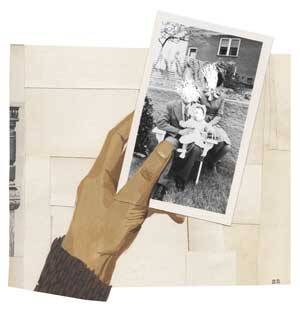Can a mother forget the child of her womb?” The prophet Isaiah reflects, using this image to demonstrate the unending providence of God toward each human creature. I have always found a great deal of comfort in the way this question is answered, “I will not forget you.”
Unfortunately, in an era when so many are afflicted with Alzheimer’s disease, a mother can and often does forget her children. I know, for my heart breaks each time my mother does not know my name or thinks I am her sister or stares at me blankly, failing to recall our past together or, worse, argues with me that I am not her daughter. My mother’s Alzheimer’s disease sneaked up on us, like a cat perched and ready to spring. Even with all that is written about the disease and plenty of evidence documenting its symptoms, the combination of natural aging and extended age can camouflage its presence. Besides, I was in denial.
My mother turned 90 in 2007, and the mind of a once independent, engaging, hard-working woman with a memory to be envied has deteriorated over the course of several years to a smattering of ideas interspersed with word searches and incomplete thoughts. Reduced to adult diapers, my mother needs constant care in order to get through each day; it is only a matter of time before this will not be enough. She lives with me now, something neither of us ever wanted, but it is a responsibility and a privilege I do not take lightly. Though the physical care required is constant and at times challenging, it is the emotional death that I grieve—the loss of connectedness to the woman who has always been a mainstay in my life.
As a grief counselor, I recognize the signs of anticipatory grief that assail me: the desire to distance myself emotionally, the future planning for a time when this is over, the guard on my feelings, the anger. My mother has forgotten me, and every time I look at her my heart weeps. If my mother forgot me, will God? What does this 21st-century version of a mother’s forgetfulness say to me of an ever-remembering God? Is there any comfort left in contemplating God’s mother-love? I think yes.
God’s memory is not brain-based, subject to electrical blips and shortages. God’s memory is heart-based. It embraces all the nuances of who I am as a human being and stores, as only a creator’s memory can, each cell of my existence. God’s memory operates always in present time, the kairos moment. The past, present and future are one in God, and my early fumbling to know God is equally alive with my present clinging to his unconditional love and the future “all-knowing” that awaits me. God’s memory of me is constant with the person known before I was knit in my mother’s womb.
This gives me an odd consolation as I gaze at my unresponsive mother. Perhaps, physical co-creator of my being that she is, she too stores somewhere within her the unconditional love she always gave me, a memory of me so blessed that it need not be spoken to be known. She may not be able to tell me that I am her daughter, but that does not mean she does not remember the child of her womb.








